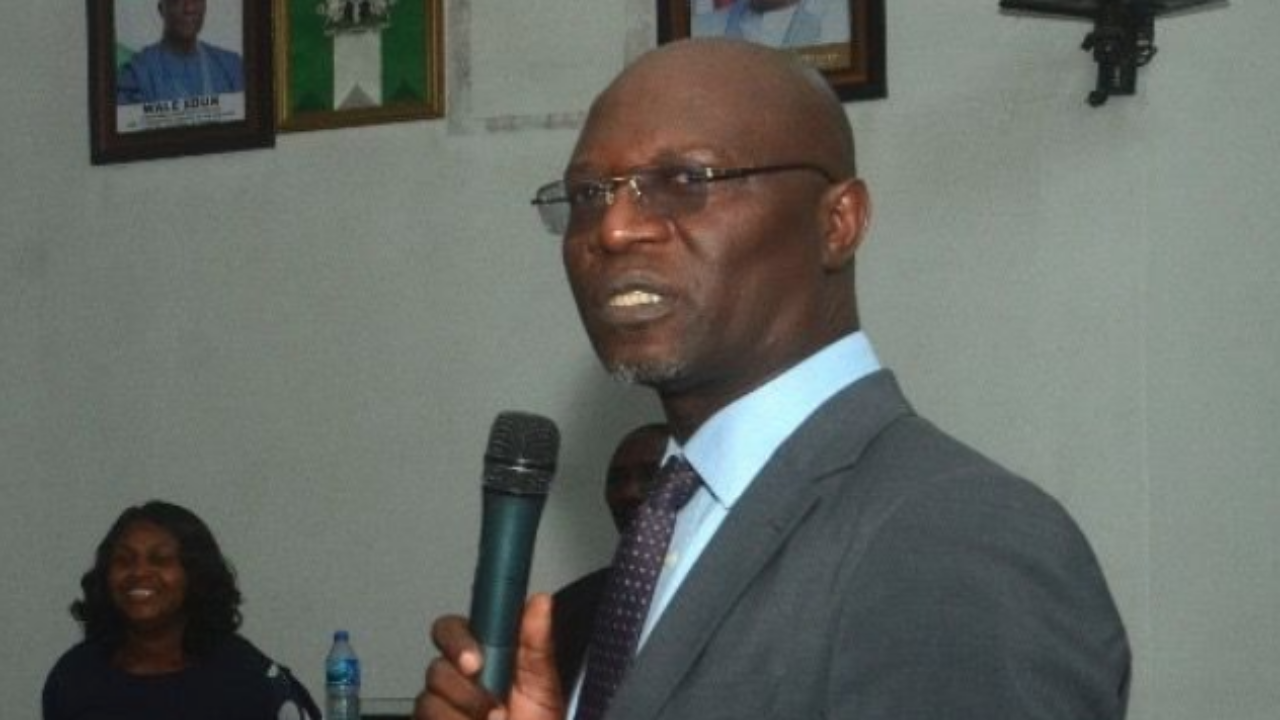
Director- General (DG) of the Securities and Exchange Commission (SEC), Dr. Emomotimi Agama, has said the bank recapitalisation is for Nigeria’s aspiration to achieve a trillion-dollar economy.
Speaking at a recent forum, on the ongoing bank recapitalisation efforts in Abuja, Dr. Agama outlined the crucial steps needed to unlock the nation’s economic potential.
Dr. Agama stressed the importance of diversifying Nigeria’s economy beyond oil exports. He highlighted the need for investments in infrastructure, human capital, and innovation. Enhancing the business environment and reducing regulatory hurdles were also pinpointed as critical factors in promoting financial inclusion and improving access to credit for small and medium-sized enterprises (SMEs) and individuals.
“Bank recapitalisation,” explained Dr. Agama, “refers to the process of increasing a bank’s capital to meet regulatory requirements, improve financial stability, and enhance lending capacity.”
He noted that the capital market plays a vital role in this process by providing banks with access to various financing options, including equity financing, debt financing, and rights issues.
Through these means, recapitalisation helps banks meet regulatory capital requirements, improve capital adequacy ratios, increase lending capacity, and enhance financial stability. This, in turn, restores investor confidence and supports better risk management.
A recapitalised banking sector, Dr. Agama noted, would significantly impact economic growth by increasing lending to key sectors such as agriculture, manufacturing, and infrastructure. It would enhance banks’ ability to underwrite large transactions, support major projects and industries, and attract foreign investors, thereby boosting capital inflows and deepening the capital market.
Recapitalisation could also encourage the listing of banks and other companies on the Nigerian Exchange Limited (NGX), increasing market capitalisation and fostering a stable financial system. This stability reduces systemic risk and promotes overall economic stability.
Despite its benefits, bank recapitalisation comes with challenges such as share price dilution, increased debt servicing, and regulatory hurdles. To navigate these issues, the SEC recently released a framework aimed at ensuring a smooth, transparent, and efficient capital-raising process for banks and holding companies participating in the recapitalisation program.
The SEC framework outlines the guidelines and procedures banks must follow to raise capital through rights issuance, private placements, or other approved methods during the 2024-2026 recapitalisation period. This framework is a response to the Central Bank of Nigeria’s (CBN) directive to increase the capital base of Deposit Money Banks (DMBs).
On March 29th, the CBN mandated an increase in the capital base for DMBs to improve productivity, setting new minimum capital requirements: N500 billion for international banks, N200 billion for national banks, and N50 billion for regional banks. This directive aims to strengthen the financial system against potential risks.
The SEC acknowledged the rationale behind the CBN’s directive, highlighting the need to bolster banks’ asset bases and support economic growth. This aligns with the government’s ambitious target of achieving a $1 trillion economy by 2030. The capital market’s role in facilitating this program is crucial, as it enables banks to access necessary funds and explore various business combinations.
“As the regulatory institution mandated to regulate and develop the Nigerian capital market, we have the responsibility to ensure a smooth, transparent, and efficient capital raise process by the banks,” the SEC framework added. It establishes clear guidelines for banks to follow, promoting transparency and protecting the interests of all involved parties.
By addressing critical sectors and leveraging a recapitalised banking sector, Nigeria can unlock its economic potential and move closer to its goal of a trillion-dollar economy.
Discover more from Astudity Limited
Subscribe to get the latest posts sent to your email.